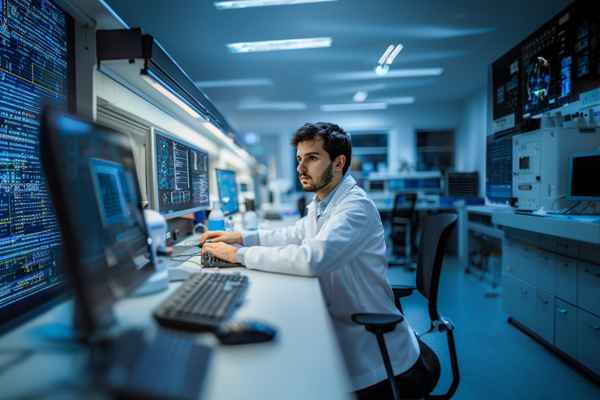• Model organisms used in molecular biology, definition of concepts - inheritance, genome, gene, non-genic DNA, primary and secondary structure of DNA, palindromes, DNA denaturation and renaturation
• Prokaryotic and eukaryotic genome - characteristics and structure
• Replication of DNA in prokaryotes and eukaryotes - single phases, overview of replication apparatus enzymes
• Cell cycle - molecular mechanisms of regulation, tumor transformation, cell death
• Mutation - gene, chromosome and genome; spontaneous and induced
• Repairs - repartition of reparation mechanisms; general (homologous) recombination
• Characteristics of RNA, transcription and post-transcriptional modifications of RNA in prokaryotes and eukaryotes
• Translations and post-translational modifications of proteins - proteosynthetic apparatus, individual phases, types of protein modifications
• Regulation of gene expression in prokaryotes and eukaryotes
• Methods of molecular biology
• Enzymes experimentally used in molecular biology - polymerases, exonucleases, endonucleases, enzyme-modifying, ligase
• Polymerase chain reaction (PCR) - principle, individual phases, PCR modifications, nucleic acid quantification by PCR
• Sequencing of DNA; hybridization techniques - principles of methods
• Cloning - principle, preparation of recombinant DNA molecule, recombinant molecule transfer methods, selection of recombinant DNA clones
• Complex molecular biology in the post-genomic period - genome, transcript, proteome, metabolite; DNA chips; basics of proteomics (2D electrophoresis, mass spectrometry)
• Genetically Related Diseases - Types of Inheritance, Overview of Significant Monogenic Inherited Diseases
• Indirect and direct molecular genetic diagnostics - principles, methods overview
• Clinical genetics - congenital developmental defects, genetic counseling
• Gene therapy - definition and classification, gene therapy of cancer, gene therapy mediated oligonucleotides, gene immunization
• Prokaryotic and eukaryotic genome - characteristics and structure
• Replication of DNA in prokaryotes and eukaryotes - single phases, overview of replication apparatus enzymes
• Cell cycle - molecular mechanisms of regulation, tumor transformation, cell death
• Mutation - gene, chromosome and genome; spontaneous and induced
• Repairs - repartition of reparation mechanisms; general (homologous) recombination
• Characteristics of RNA, transcription and post-transcriptional modifications of RNA in prokaryotes and eukaryotes
• Translations and post-translational modifications of proteins - proteosynthetic apparatus, individual phases, types of protein modifications
• Regulation of gene expression in prokaryotes and eukaryotes
• Methods of molecular biology
• Enzymes experimentally used in molecular biology - polymerases, exonucleases, endonucleases, enzyme-modifying, ligase
• Polymerase chain reaction (PCR) - principle, individual phases, PCR modifications, nucleic acid quantification by PCR
• Sequencing of DNA; hybridization techniques - principles of methods
• Cloning - principle, preparation of recombinant DNA molecule, recombinant molecule transfer methods, selection of recombinant DNA clones
• Complex molecular biology in the post-genomic period - genome, transcript, proteome, metabolite; DNA chips; basics of proteomics (2D electrophoresis, mass spectrometry)
• Genetically Related Diseases - Types of Inheritance, Overview of Significant Monogenic Inherited Diseases
• Indirect and direct molecular genetic diagnostics - principles, methods overview
• Clinical genetics - congenital developmental defects, genetic counseling
• Gene therapy - definition and classification, gene therapy of cancer, gene therapy mediated oligonucleotides, gene immunization
